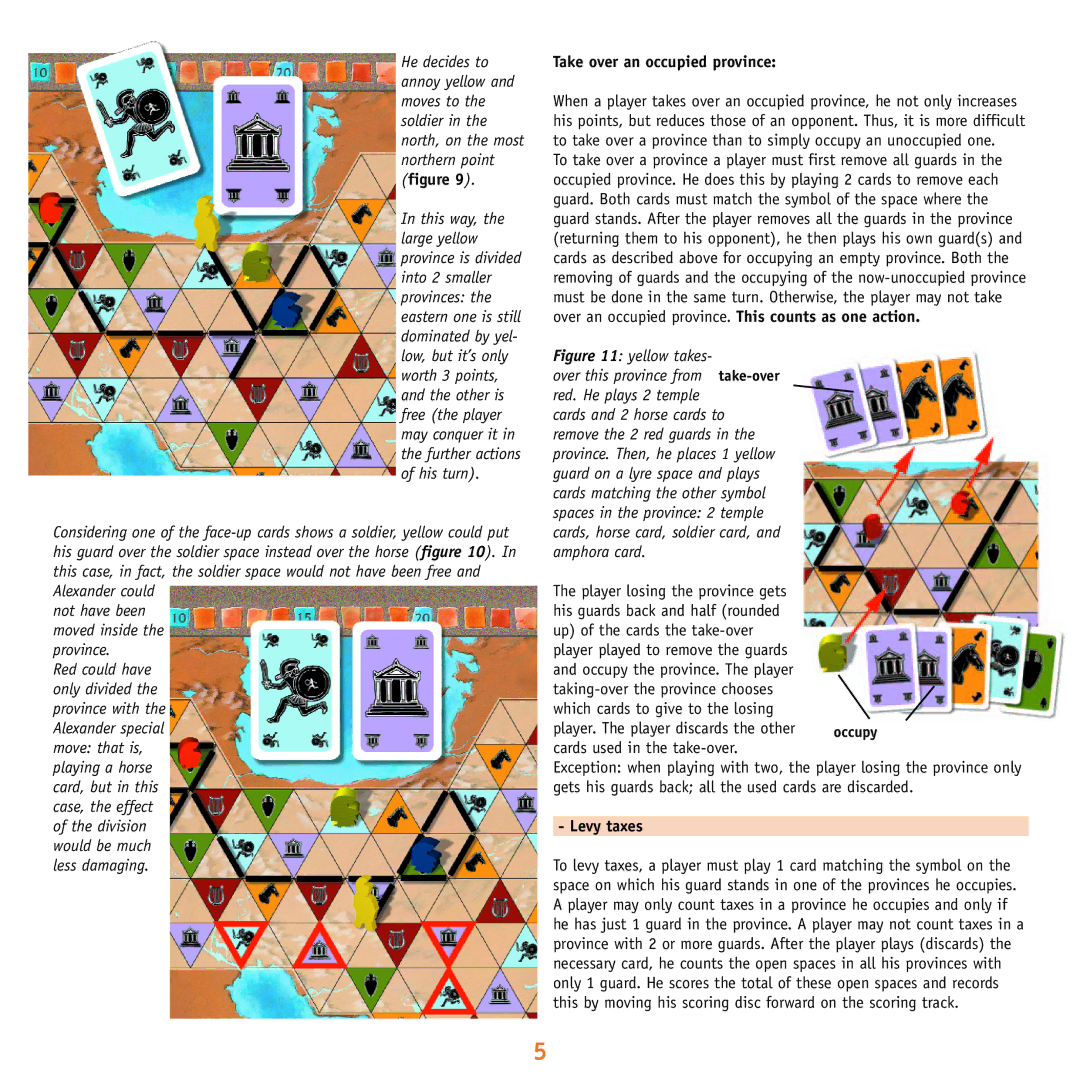
He decides to annoy yellow and moves to the soldier in the north, on the most northern point (figure 9).
In this way, the large yellow province is divided into 2 smaller provinces: the eastern one is still dominated by yel- low, but it’s only worth 3 points, and the other is free (the player may conquer it in the further actions of his turn).
Considering one of the
not have been moved inside the province.
Red could have only divided the province with the Alexander special move: that is, playing a horse card, but in this case, the effect of the division would be much less damaging.
Take over an occupied province:
When a player takes over an occupied province, he not only increases his points, but reduces those of an opponent. Thus, it is more difficult to take over a province than to simply occupy an unoccupied one.
To take over a province a player must first remove all guards in the occupied province. He does this by playing 2 cards to remove each guard. Both cards must match the symbol of the space where the guard stands. After the player removes all the guards in the province (returning them to his opponent), he then plays his own guard(s) and cards as described above for occupying an empty province. Both the removing of guards and the occupying of the
Figure 11: yellow takes-
over this province from
cards and 2 horse cards to remove the 2 red guards in the province. Then, he places 1 yellow guard on a lyre space and plays cards matching the other symbol spaces in the province: 2 temple cards, horse card, soldier card, and amphora card.
The player losing the province gets his guards back and half (rounded up) of the cards the
player. The player discards the other occupy cards used in the
Exception: when playing with two, the player losing the province only gets his guards back; all the used cards are discarded.
- Levy taxes
To levy taxes, a player must play 1 card matching the symbol on the space on which his guard stands in one of the provinces he occupies. A player may only count taxes in a province he occupies and only if he has just 1 guard in the province. A player may not count taxes in a province with 2 or more guards. After the player plays (discards) the necessary card, he counts the open spaces in all his provinces with only 1 guard. He scores the total of these open spaces and records this by moving his scoring disc forward on the scoring track.
5
